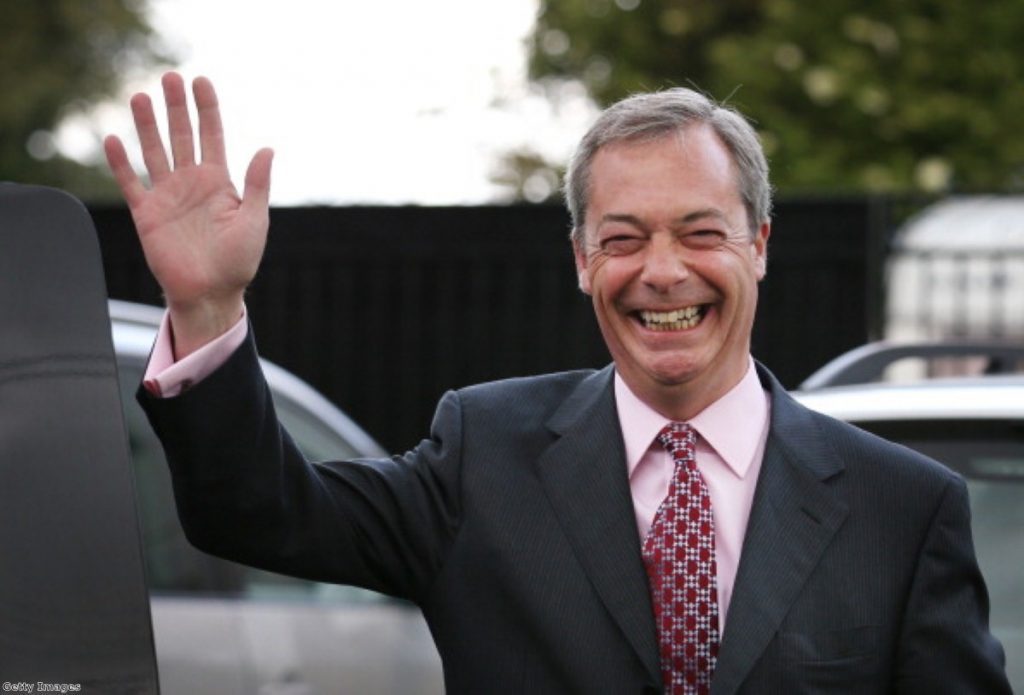Ukip’s European election results are not as good as they seem
Let's not get carried away. Ukip did well in this week's European elections but not that well.
The 'earthquake' so widely predicted by pollsters and the press did not in the end materialise. Ukip came first but their vote share went up by 11 points as opposed to 9.7 points for Labour.
Apparently we're meant to believe that the former amounts to an "earthquake," while the latter amounts to a "disaster". I'm not convinced.
Ukip were always going to do well in these elections. The only question was how well. Most polls predicted the party would end up in the low-to-mid thirities in vote share. They didn't. They ended up in the high twenties.


Nigel Farage predicted a "record turnout" as voters inspired by Ukip's message rushed to the polls. There wasn't one.
Turnout across the UK actually went down slightly from five years ago, with two-thirds of all voters not bothering to vote at all. If this was a "people's revolution" then it was a pretty underwhelming one.
To be fair, Ukip did achieve some remarkable results. Beating Labour in Ed Miliband's own constituency is certainly an eye-opening achievement, as was narrowly coming first in Newark where the party hopes to win a by-election next month.
But eye-opening is all they were. They do not translate into actual seats in domestic elections. In the local elections also held this week, Ukip won just one council seat in Doncaster. And unless today's results cause an unprecedented bounce for the party, the Tories are set to hold on to Newark as well.
And while Nigel Farage portrays himself as the head of a "people's army", the truth is that large areas of the country continue to reject the party. In the great cities of London, Manchester, Birmingham and Liverpool, Nigel Farage's party didn't even come close to winning the Euro poll.
Across the whole of the country, Ukip still remain a marginal concern. Despite piling up large numbers of second place results in the local elections, the party won just 161 councillors on Thursday as opposed to 427 for the Lib Dems, 1,359 for the Conservatives and 2,101 for Labour. And despite all of the publicity the party has received in recent weeks, Ukip actually lost a quarter of its national vote share from the year before.
If the party are lucky they may be able to translate these gains in the local elections into winning one or possibly two MPs next year. This would be a respectable result, but not exactly the 'earthquake' we've been reading about over the past few weeks.
This is not to say the rise of Ukip is insignificant. As Lord Ashcroft's poll of marginal seats this week found, significant numbers of Ukip votes could be enough to split the vote next year and deliver a majority for Ed Miliband.
If that happens then Nigel Farage will enter the history books. But it won't be as the victorious leader of a "people's army". It will be as the leader of the modern equivalent of the SDP.









